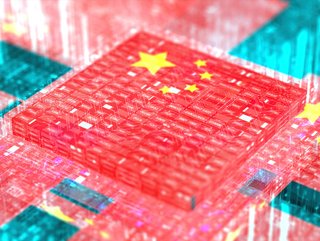Chinese AI Market Thrives Despite Chip Restrictions

According to STMicroelectronics, the People’s Republic of China continues to be a growth market, despite increased tensions over semiconductors between the nation and the United States.
As reported by Reuters, the high-tech company views the Chinese market as essential for a wide range of key industries, including electric vehicles (EV), digital power controls and renewable energy. In addition, it has been forecast that chipmakers in China will add around 12% to semiconductor association SEMI, more so than any other country.
With China continuing to expand its global AI and semiconductor presence worldwide, it will be interesting to witness the dynamics between other key nations around the world as everyone vies to be ahead in the global AI race.
Continuing to invest in AI expansion efforts
In February 2024, Holistic AI anticipated that China’s AI market is expected to triple from US$23.196bn in 2021, to roughly US$61.85bn by 2025. In fact, the Chinese government itself has announced that they expect AI to create more than US$154bn in annual revenue by 2030.
With such a dynamic technology market, the country’s top internet companies, including Alibaba, Baidu and JD, already boast well-established AI bots to rival OpenAI’s ChatGPT, much like the ERNIE bot.
These leading companies, among others, remain keen to leverage their technology further amid a broadening AI landscape.
Notably, the country has successfully managed to keep momentum with its AI developments, having introduced world-first regulations into AI technology such as deepfakes and generative models. Its May 2023 interim measures on generative AI (Gen AI) state that the technology must adhere to the “core socialist values of China” and should not endanger national security or interests or promote discrimination, violence or misinformation.
Until recently, numerous companies around the world - much like STMicroelectronics - have been banking on Chinese semiconductors. As reported in October 2023, Samsung and SK Hynix were both making about 40% of their chips in China.
However, ASML, a semiconductor company based in the Netherlands, halted shipments of its hi-tech microchip machinery to China after reported pressure from the US government.
The US government imposed restrictions on the Chinese chip market in 2023 and thereby limited investments into Chinese AI sectors. This has inevitably had a knock on effect for global businesses, with leading technology companies like NVIDIA and Intel having to release a new range of chips for Chinese markets.
Continued digital transformation in a booming market
Despite restrictions, however, rather than slowing down, China appears to be speeding up. This was at least the case as far as Chinese EV manufacturer Xpeng is concerned, which earlier in 2024 committed to hiring 4,000 new employees to invest further into AI amid a slowing EV market.
The company is also proposing that it will invest 3.5 billion yuan (US$486.36m) into AI research and development for intelligent driving initiatives.
According to Forbes in a February 2024 article, technology and AI stocks are on the increase for the country, highlighting that China is continuing to commit to huge enterprise digital transformations.
This is evident via its multiple plans to promote the development of AI technologies, including initiatives such as Made in China 2025 and the Next Generation Artificial Intelligence Development Plan (2017) - all designed to oversee the growth of the AI sector, whilst seeking to preserve AI ethics and governance.
What is clear is that China wants to continue succeeding and evolving during this rapid and ever-evolving age of AI.
************
Make sure you check out the latest edition of AI Magazine and also sign up to our global conference series - Tech & AI LIVE 2024
************
AI Magazine is a BizClik brand






